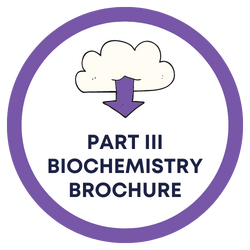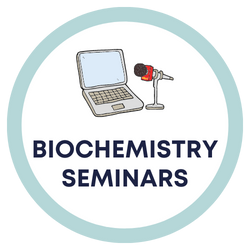LecturesIn Michaelmas Term, choose either:
In Lent Term, choose either:
Part III students are also welcome to attend the Part II Methods and Skills lectures as a refresher (which may also be of interest to students coming from Part II subjects other than Biochemistry). For example, “How to write a scientific report” and “Basic statistics”. |
Peer Group Seminars on Scientific Method and Experimental DesignThe overall aim of these sessions is to develop your understanding of scientific method and process - the development of hypotheses, the choice of experimental systems and the design of experimental tests of the hypotheses. The sessions will run on Tuesday afternoons throughout Michaelmas and Lent Terms.
|
Research ProjectsThere is a 17-week project during the Michaelmas and Lent Terms, which can be laboratory- or computer-based. The Part III research projects are generally carried out under the supervision of a member of the Department, but please note that not all Group Leaders will host a research project every year due to sabbatical leave. Prospective students can find information about potential project supervisors in the Department on the website. It is also possible to arrange projects with Group Leaders in other Cambridge research institutes in consultation with the Part III Project Organiser. The project weighting is 50% of the total marks in the examination. Throughout the project, it is vital that students achieve a reasonable balance between project work and other aspects of the course. Students are of course largely responsible for policing their own work programme but staff have been reminded of the need for students to achieve this balance and to guard against any suggestion of undue pressure. It is important that students commence the Project write-up before the end of the Lent Term, to avoid the erosion of revision time caused by a ‘creep’ of project write-up well into the Easter vacation and beyond.
|
Student FeedbackThe Part III Biochemistry course is run by the Part III Management Committee. This committee considers the minutes of the Part III Class Meeting, which comprises the Part III students and the Module Organisers. More formally, questionnaires are provided on the various components of the course, and the responses are considered in the first instance by the Part III Management Committee. Staff attach considerable importance to student views and a number of modifications to the course have originated as student suggestions. |





